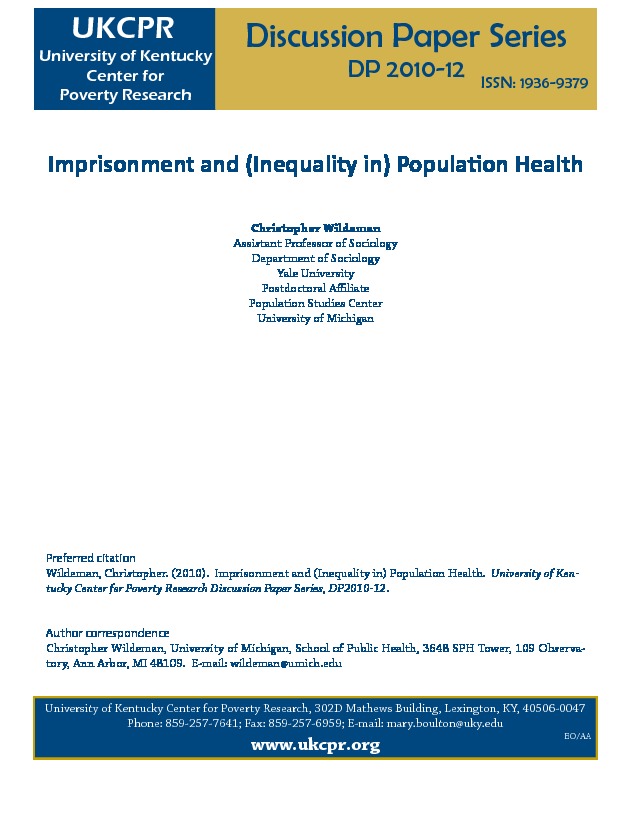This article extends research on the consequences of mass imprisonment and the factors shaping population health and health inequities by considering the effects of the imprisonment rate on population health and black-white inequality in population health using state-level panel data from the United States (1980-2004). My results imply that increases in the imprisonment rate harm population health, though the effects on the infant mortality rate and female life expectancy are more consistent than are the effects on male life expectancy. My results also imply that these health effects are concentrated among blacks, implicating mass imprisonment in the persistence of black-white inequities in population health. The effects, moreover, are substantial. According to my estimates, if the American imprisonment rate had remained at its 1980 level, black life expectancy at birth would have been 0.8 years longer in 2004, and black-white inequality in the infant mortality rate would have been 23 percent smaller. My results also indicate, however, that increases in the imprisonment rate are associated with decreases in the mortality rates of young black men. Although imprisonment’s long-term effects on health and health inequities are mostly negative, imprisonment may, in the short-run, have some health benefits for young black men.
Research
InequalityPDF Thumbnail
